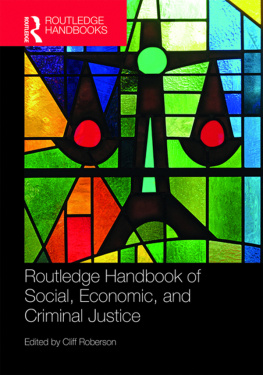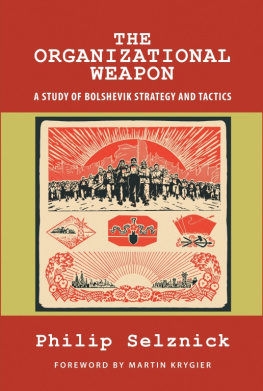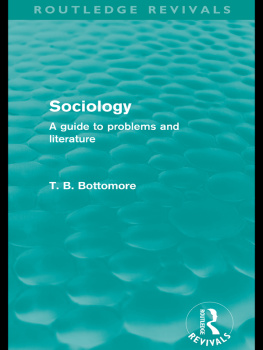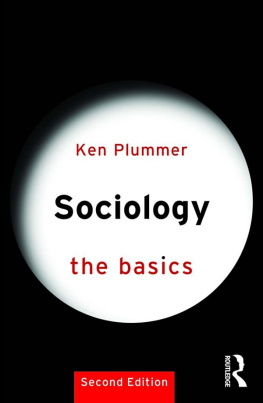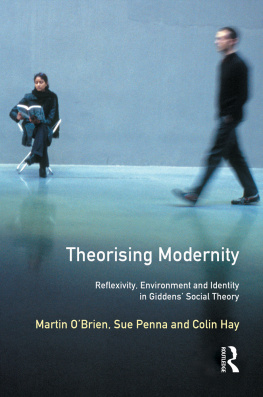Jurists: Profiles in Legal Theory
William Twining, General Editor
Philip Selznick
IDEALS IN THE WORLD
Martin Krygier
STANFORD LAW BOOKS
An Imprint of Stanford University Press
Stanford, California
Stanford University Press
Stanford, California
2012 by the Board of Trustees of the Leland Stanford Junior
University. All rights reserved.
No part of this book may be reproduced or transmitted in any form or by any means, electronic or mechanical, including photocopying and recording, or in any information storage or retrieval system without the prior written permission of Stanford University Press.
Printed in the United States of America on acid-free, archival-quality paper
Library of Congress Cataloging-in-Publication Data
Krygier, Martin, author.
Philip Selznick : ideals in the world / Martin Krygier.
pages cm. (Jurists: profiles in legal theory)
Includes bibliographical references and index.
ISBN 978-0-8047-4475-1 (cloth: alk. paper)ISBN 978-0-8047-8374-3 (e-book)
1. Selznick, Philip, 19192010. 2. Sociological jurisprudence. 3. Organizational sociology. 4. Social sciencesPhilosophy.
I. Title. II. Series: Juristsprofiles in legal theory.
k 370. k 794 2012
306.2'501dc23
2011036777
Typeset by Thompson Type in 10/13 Galliard
For Jonathan
My son and friend
Contents
Acknowledgments
Rudi Dutschke, a leader of the German student movement of the 1960s, advised his comrades that they were in for a long march through the institutions. When Malcolm Feeley suggested I might write a book on the thought of Philip Selznick, one of the most interesting of institutional theorists, he didnt issue the same advice. But so it has turned out. On the way, I have accumulated many debts, both institutional and personal. There is no way to repay them, but they should at least be acknowledged.
I have been generously supported by my law school throughout this project. I have also benefited much from time spent at several stimulating and collegial intellectual centers. Among these were several periods at the Center for the Study of Law and Society, University of California Berkeley, which Selznick founded, where the suggestion for the book emerged, and where I have worked on it from time to time, given seminars and conference papers, and discussed work-in-progress with anyone who would listen.
I also gained from a visiting fellowship at the Humanities Centre, Central European University, Budapest, in 2003, in connection with a joint project with Princeton Universitys Law and Public Affairs Program, on universalism and local knowledge in human rights. My chapter in the book that resulted was the product of seminars in Budapest and Princeton and was an attempt to discern and unveil Selznicks largely implicit theory of human rights. My special thanks to Andrs Saj for inviting me to join that project.
Concerted work on the book took place during my fellowship at the Center for Advanced Studies in the Behavioral Sciences, Stanford, in 20052006. That was true and fruitful fellowship. In 2009, I was Law Foundation Distinguished Visiting Fellow at the five New Zealand Law Schools. I gave seminars on Selznick, inter alia, at them all. I am grateful for these opportunities and the valuable discussions they promoted.
As part of this project, I have also given seminars on parts of this book at the Regulatory Institutions Network, Australian National University; the Hertie School of Governance, Berlin; the Institute of Sociology, Jagiellonian University, Cracow; the Law and Society Center, University of Edinburgh; the Department of Sociology, Harvard University; the Julius Stone Institute of Jurisprudence, University of Sydney; and the Center for Legislative Studies, Tilburg University. Again I benefited from intellectual workouts and feedback at all these institutions.
Institutions aside, my personal debts are vast. At the Berkeley Center for the Study of Law and Society, which he founded, it is hard not to have conversations about Selznick, and I have had many. My conversational partners, sources of advice and inspiration, have included Meir Dan Cohen, Lauren Edelman, Malcolm Feeley, Sanford Kadish, Robert Kagan, David Lieberman, Charles McClain, the late Sheldon Messinger, Philippe Nonet, Robert Post, Jerome Skolnick, and Jonathan Simon. I gained much from their insights and their advice. Philip Selznicks widow, Doris Fine, deserves special mention. She was his soul mate and has been unfailingly generous in sharing her understanding and insights into the man she knew and loved so well.
From the very beginning, Selznicks long-time intellectual interlocutor, Kenneth Winston, undertook to read drafts of every chapter, and he gave me detailed commentary on them all. His generosity, wisdom, and encouragement have been boundlessand indispensable to me. At a late stage in the writing, James Rule read a draft of the book as a whole. His suggestions and criticism were both sharp and extremely helpful. So too were the suggestions of the two anonymous reviewers of the manuscript.
Roger Cotterrell, Arthur Glass, Ben Golder, Jonathan Krygier, Gianluigi Palombella, Gianfranco Poggi, Kim Lane Scheppele, Sanne Taekema, Robert van Krieken, Wibren van der Berg, and especially Paul van Seters have been happy to help at different times in the progress of the work; my wife, Julie Hamblin, at all timeseven though in her case that meant very many times.
I owe special thanks to William Twining, who initially considered my proposal to the Press for a book on Selznicks legal sociology. He has been a kind, patient, and wise editorial advisor ever since, undaunted by the ballooning scope of the book or the time it took. The editors at the Press, first Amanda Moran and now Kate Wahl, who has also had carriage of the manuscript and its refinement, are exemplary professionals and a pleasure to work with.
My greatest debt in relation to this book is, naturally enough, to Philip Selznick himself. Though well disposed, he didnt seek the book, and he never interfered. But he gave as much of his time and reflections as I asked for, and then some. I believe the book gained enormously from our conversations and correspondence, as well as my interviews with him. Others will judge that, but I know I gained a great deal. I have sought to suggest the range and something of the measure of his intelligence in the book, but I also stress matters of character. Of course character is a large thing, beyond intellect. Philips was admirable, and my respect for that, as well as for what he had to say, affects what follows.
My preoccupation with this work has lived with my family for a long time. What I owe them for their patience is the least of it, and in any event beyond measure or words.
Portions of this book build on ideas that first appeared in:
Walls and Bridges: A Comment on Philip Selznicks The Moral Commonwealth,California Law Review, 82 (1994), 473486; Selznicks Subjects, and Philip Selznick, Normative Theory, and the Rule of Law, in Robert A. Kagan, Martin Krygier, and Kenneth Winston, eds., Legality and Community: On the Intellectual Legacy of Philip Selznick (Lanham, MD, and Boulder, CO: Rowman & Littlefield, 2002), 316 and 1948; Human Rights and a Humanist Social Science, in Christopher L. Eisgruber and Andrs Saj, eds., Global Justice and the Bulwarks of Localism: Human Rights in Context (Amsterdam: Brill, 2005), 4384; Philip Selznick: Incipient Law, State Law and the Rule of Law, in J. van Schooten and J. M. Verschuuren, eds., International Governance and Law. State Regulation and Non-State Law (Cheltenham, UK: E. E. Elgar, 2008), 3155;
Foreword to Philip Selznick,
Next page

